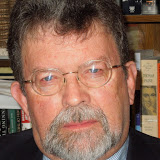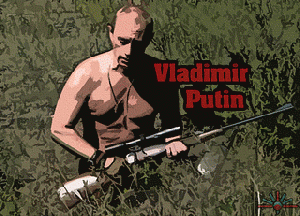I live in Philadelphia. There was a time when I wrote book reviews and op-eds for The Philadelphia Inquirer. That period ended, however, thanks to the intemperate language I hurled at its editors for the far too many articles and columns they published that attempted to justify an invasion of Iraq. Subsequently, whenever I was moved by something in the Inquirer that was egregiously lousy, I would write an article about it. Some of these articles eventually were given the title, "Stinky Inky."
Well, the "Stinky Inky" is at it again. Upset by events in Ukraine, Trudy Rubin is stinking up the Inky with her blatant anti-Putin propaganda. Beyond her inability to get her facts straight, Ms. Rubin has displayed a stunning ignorance of post-Soviet Russia.
For example, in her 23 March 2014 column titled, "A framework for a response to Putin," Ms. Rubin began by misrepresenting what Secretary of State, John Kerry, meant, when he called Russia's invasion of Crimea "a 19th-century act in the 21st century." Mr. Kerry's actual statement was: "Russia is engaged in a military act of aggression against another country, and it has huge risks, George. It's a 19th century act in the 21st century."
Mr. Kerry was much clearer when speaking to CBS. "You just don't in the 21st century behave in 19th century fashion by invading another country on completely trumped up pre-text." But, presumably uncomfortable with Mr. Kerry's poor choice of words -- which conjured up memories of his support for President George W. Bush's decision to invade Iraq in 2003, the most serious war crime of the 21st century -- Ms. Rubin decided to bail out America's Hypocrite of State by telling us what he really meant to say. "In other words, 21st-century rules of an interconnected world barred anything as atavistic as forceful seizure of European territory." Changing Kerry's words to mean "forceful seizure of European territory," is something best left to a press secretary or an apologist, not an independent journalist.
Ms. Rubin also denounced Russia for threatening to use a gas cutoff as political leverage. Then, she hypocritically urged Western leaders to "brandish the energy weapon when they gather in Europe." Finally, she also urged the West to provide weapons to Ukraine.
Now, it is true that many in the West thought that the collapse of the Soviet Union had brought "the end of history," as Francis Fukuyama so memorably put it, and inaugurated what Ms. Rubin calls "21st-century rules of an interconnected world." Democracy and markets had achieved their final triumph over ideology and geopolitical blocs. Now it was the fate of democracy and markets to complete their glorious and inexorable sweep across the rest of the world.
According to this conceit of Western triumphalism, the new liberal world order would render geopolitical considerations obsolete (except, of course, when the U.S. felt compelled to invade or bomb another sovereign state). Under the new liberal world order, the gentle penetration of sovereign states by the West's free markets and democracy was natural and beneficial, even if such free markets and democratic institutions in the West had become pawns in the hands of the Western financial and corporate oligarchs known as the 1%.
(In a widely heralded scholarly study titled: "Testing Theories of American Politics: Elites, Interest Groups, and Average Citizens," professors Martin Gilens and Benjamin I. Page concluded: "Multivariate analysis indicates that economic elites and organized groups representing business interests have substantial independent impacts of U.S. government policy, while average citizens and mass-based interest groups have little or no independent influence." Thus, even the U.S. is not a democracy but an oligarchy.)
Nevertheless, any attempt to prevent the West's gentle penetration was viewed as a violation of the natural and beneficial new liberal world order. And if such penetration in Europe brought benign NATO membership in its wake, so what?
However, what the cheerleaders for the new liberal world order have forgotten is the fact that both the United States and Germany -- in the persons of Secretary of State James Baker and German Foreign Minister, Hans-Dietrich Genscher -- made a decidedly geopolitical promise to Soviet President Mikhail Gorbachev and Soviet Foreign Minister Eduard Shevardnadze. They promised not to extend NATO east of Germany in return for Soviet assistance in the peaceful reunification of Germany under NATO. The Soviet leaders upheld their end of the bargain, but the U.S. -- in the person of President Clinton -- reneged.
In post-Soviet Russia, the new liberal world order took the form of "shock therapy," which transferred enormous wealth to the oligarchs and severely impoverished millions of Russians during the 1990s. As a result of their experience, many Russians began to associate free markets with outright theft.
Russia's political elite never forgot Clinton's "stab-in the-back" on NATO enlargement. Neither did they overlook NATO's revision of its strategic concept that, by 1999, allowed it to undertake offensive military action, even if none of its members had suffered an attack.
Moreover, while the world was touting the new liberal world order of markets and democracy, in 1998 Zbigniew Brzezinski, a prominent Polish-American Russophobe, was waxing geopolitical: "Ukraine, a new and important space on the Eurasian chessboard, is a geopolitical pivot because its very existence as an independent country helps to transform Russia. Without Ukraine, Russia ceases to be a Eurasian empire."
"However, if Moscow regains control over Ukraine, with its 52 million people and major resources as well as access to the Black Sea, Russia automatically again regains the wherewithal to become a powerful imperial state, spanning Europe and Asia."
(Note: You can view every article as one long page if you sign up as an Advocate Member, or higher).






